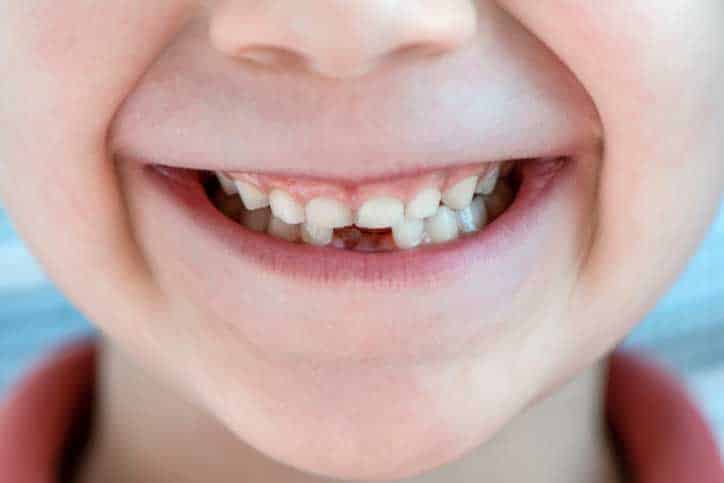Good oral health starts at an early age. You can care for your child’s teeth before they even come in, and you can set the tone for a healthy smile in the future. Here’s a quick guide explaining how to care for baby teeth and gums.
Clean Gums Starting at 3 Months Old
Starting at about three months old, you can wipe your baby’s gums don with a damp cloth or piece of gauze. You can do this twice a day, gently scrubbing along the top of the gums. This will make it easier for your baby to transition to teeth brushing when his or her teeth first come in. It also gives you time to practice different techniques to see what your child feels most comfortable with.
Use an Infant Toothbrush When the First Tooth Emerges
When your baby’s first tooth comes in, you can use an infant toothbrush to clean the tooth. You only need to wet the brush. Do not use toothpaste at this time. If your baby does not like the toothbrush at first, you can continue using a cloth or gauze for twice-daily teeth cleanings.
How to Clean Baby Teeth:
- Position your baby so you have easy access to the teeth. You may position him vertically on your lap or next to you on the bed, depending on where he feels most secure.
- If laying on the bed, cup your baby’s chin to slightly point his mouth towards you. You want to position your baby so you can easily access all of his teeth.
- Lift the upper lip and wipe the teeth in soft circular motions. Clean each tooth individually and clean along the gumline for optimal care.
- Sing a song or use a toy for distraction if your baby gets squirmy during teeth cleaning.
How to Prevent Early Tooth Decay
In addition to cleaning your baby’s teeth twice a day, there are some steps you can take to prevent tooth decay and encourage healthy smile development.
- Do not give your baby sugary drinks. Babies under 6 months should strictly drink breastmilk or formula. After that, you can start adding small amounts of water to their diet, but avoid sodas, juices, and other drinks that may cause tooth decay. Also avoid foods that are high in sugar once your baby transitions to solids.
- Do not leave a bottle with your baby at night. The mouth naturally produces less saliva at night. If your baby falls asleep with a bottle dripping into his mouth, the teeth will stay soaked in mouth. This can cause early tooth decay.
- Limit pacifier usage. Babies who use a pacifier for too long or too often during their smile’s development may have issues with dental alignment. The same can be said for thumb sucking, but that is harder to control than pacifier usage. Learn more: How to Avoid Pacifier Teeth.
- Schedule routine dentist appointments at an early age. This will help your child feel comfortable going to the dentist and allow you to keep track of his oral health.
Should I Use Toothpaste on My Baby’s Teeth and Gums?
Do not use toothpaste until your bay is 18 months old, unless your dentist advises you otherwise. You only need to use water for teeth and gum cleaning until that timeframe. Then you can transition to baby-safe toothpaste. Never use adult toothpaste for a baby, toddler or young child because it is not safe for them to swallow.
Schedule Your Baby’s First Dentist Appointment (Approx. 1 Year Old)
You can take your child to the dentist before the first tooth emerges. Plan to see the dentist around your child’s first birthday to check for early signs of oral health issues. We have a full guide about What to Expect at Your Child’s First Dentist Appointment to prepare parents for this milestone.
To schedule an appointment with a pediatric dentist in Metro Detroit MI, contact Clinton Dental Center at (586) 949-5363.











